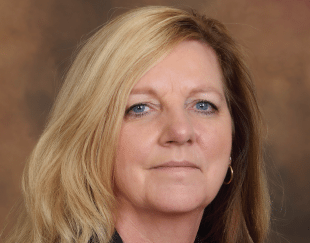Lori Travers, AAS, RHIT, CTR is a Project Manager for the Registry Partners Oncology division.
Prior to joining Registry Partners, Lori served as a Client Services Manager for four years and a Cancer Registry Manager for two years for CHAMPS Oncology. She has worked for the Idaho Cancer Data Registry, served as Cancer Tumor Registrar for St. Alphonsus Regional Medical Center in Boise and has seven years of experience working as a CTR Consultant.
Lori earned her Associate of Science Degree in Health Information Technology from Boise State University and is certified as a Registered Health Information Technician (RHIT) and Certified Tumor Registrar (CTR). She is a member of the National Cancer Registrars Association (NCRA) where she has served as Western Advocacy and Technical Practice Director, GPEC Committee Member, Education Foundation Committee Member/Treasurer, and Nominating Committee Member (West); the Idaho Cancer Data Registrars Association (IACDR) where she has served as Secretary/Treasurer; the American Health Information Management Association (AHIMA) and the Idaho Health Information Management Association.
Lori resides in Idaho and has two children and a cocker spaniel. In her spare time she enjoys traveling and exploring new places, home remodeling and landscaping, playing golf, walks in the Treasure Valley area and spending time with her family and friends.
Q & A with Lori:
Q: How did you become aware of the CTR profession & what did you do to prepare for the CTR certification?
A: I became aware of the CTR profession as I was working on my health science degree and completing the clinical hours for my RHIT internship. I was fortunate enough to be offered the opportunity to apply with the cancer registry after completing my clinical hours and subsequently got the job. The cancer program was made up of devoted professionals who were committed to the overall care of the patient and the patient’s family. These individuals served as mentors to me, providing education and encouragement as I took on this important CTR role. Shortly after obtaining my CTR certificate my father was diagnosed with cancer, which reinforced the need of quality data to be tracked throughout the patient’s life time.
Q: There have been many changes implemented throughout your cancer registry career. Do you have a specific change that stands out as the most memorable change? What advice can you share on how best to deal with change when it occurs in the registry profession?
A: I served on the NCRA Board of Directors during a timeframe where it became evident the importance of the CTR profession in order to advocate for accurate staffing and salaries. I was able to participate on the board to exhibit the need to reshape and upgrade the CTR education by requiring a health science associate degree. This was the starting point for CTRs to receive a national Bureau of Labor Statistics code for our profession. The advice I can share on how to deal with change occurring in the profession is challenging one’s self and not losing sight of the role a CTR plays in the patient’s care, ultimately providing quality data used by oncology professionals and cancer researchers. In other words, when we feel overwhelmed by increased data collection fields or codes – we need to keep in mind that our work is changing the care for someone’s father, mother, sibling or child.
Q: If you could select one memorable moment that has occurred throughout your healthcare career what would it be and why?
A: I enjoy the opportunity to educate/mentor others about our profession. It’s inspirational when an individual gets excited about this profession and I have contributed to their decision to choose the CTR career path.





